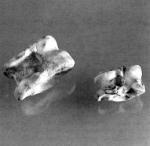Board games history: Greek and Roman skill games
Posted on: October 30, 2009
 Greek and Roman games are one of the little known aspects of these ancient societies.
Greek and Roman games are one of the little known aspects of these ancient societies.
In Hellenistic and Roman culture skill games were a recreational activity both for children and adults.
Since prehistoric times is possible to recognize the so-called ancestors of games and toys among the archeological finds and in the works of Hellenic and Romans artists and poets:
We know for sure that in the fifth century BC, Crater, an Athenian playwright, wrote a play dedicated to skill games.
In ancient Rome writer Suetonius wrote two different books one on Greek kids games, and the other on the Romans ones: unfortunately all these works got lost and we know only a few certain things about ancient Greek and Roman skill games.
A lot of references are traceable in the works of philosophers, poets, playwrights who, helped us to understand that in every ancient game there was a deep educational theory to help and support kids development through the use of their skills.
In the ancient Roman world the expression “nuces relinquere” (leave the nuts), meant leaving childhood and becoming adult, because nuts were used by kids to play one of the most popular skill game in ancient Rome . The nuts were used like balls and thrown to to smash other nuts, just like in the modern bowling game.
 Equally fascinating for the boys was the game of Astragals, considered the ancestor of dices, a pastime practiced since since the Egyptians and Greeks. The astragal is a small bone of the foot of the goat used by kids and adults to play many skill games.
Equally fascinating for the boys was the game of Astragals, considered the ancestor of dices, a pastime practiced since since the Egyptians and Greeks. The astragal is a small bone of the foot of the goat used by kids and adults to play many skill games.
In the Hellenistic world a skill game with these little bones dates back to the Homeric work the Iliad (23, 88) when the angry Patroclus kills her friend for a quarrel arose during the game of Astragals.
 Greek and Roman girls use them for the game called the five stones, which is to launch the little bones in the air and then trying to catch them as quick as possible with the back of the hands. Every kid had a bag of Astragals to play different skills games during the free time.
Greek and Roman girls use them for the game called the five stones, which is to launch the little bones in the air and then trying to catch them as quick as possible with the back of the hands. Every kid had a bag of Astragals to play different skills games during the free time.
Sometimes, at school, teachers used to give Astragals to the good scholars and often these ancient dices were part of the funeral of the children died prematurely.
Adults, used these small bones as dice to play different skill games:
the Astragal has four sides: two flat, one concave and the other convex. Each side has a different value: 1-3-4 and 6, players roll the “dice” and the one with the highest score is the winner .

In the ancient game of Aliossi instead, four Astragals were used without the numerical value and the aim was to form different combinations from the simultaneous launch of the pieces.
A very special combination was the so-called Venus (all the four little bones with a different side face up),on the contrary, the “dog” combination was the worst (all the same sides of the pieces face up).
2 Responses to "Board games history: Greek and Roman skill games"
Playing skill games up against other users for cash has become very popular lately. The uniqueness of a skill game is that the game’s outcome is predominantly determined by players skills and not by luck.

November 18, 2009 at 3:03 pm
I read many of your blog posts. Good Job and very informative.
Keep it up!
Regards
Tom